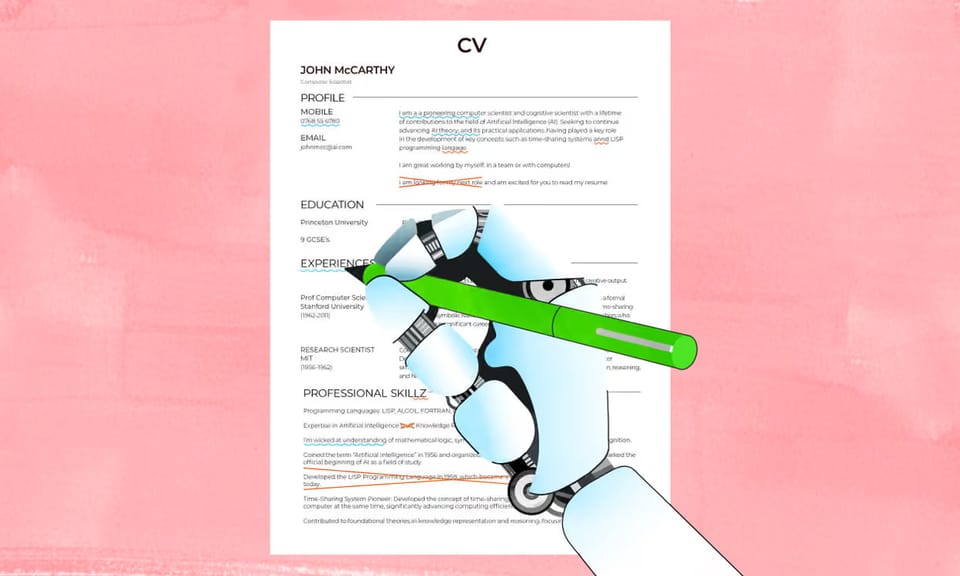Is Circle's Internet Money the Future of How We All Pay?


This issue’s got some serious warnings and wild tech shifts:
- AI toys that talk back? A new company is turning Cinderella into your kid’s new BFF and today’s the last day to invest
- Deadly pasta recall, check your fridge if you shop at Walmart or Kroger
- Circle’s internet money might be the future of how we all pay
- FBI says delete that fake DMV text, your identity’s at risk
Let’s break it down.
Elf Labs
$6B+ Team Won Rights to the Most Profitable Characters in History
Quick question: What happens when you combine:
- 100+ trademark victories for characters like Cinderella & Snow White
- Patented AI, AR & VR technology
- A $350B licensed merchandise market
- A team with $6B+ in licensing deals
Answer: You get Elf Labs, the company building AI-powered 3D worlds where kids can have real-time conversations with their Rapunzel doll or play hide-and-seek with Cinderella, right in their living room!
They're reshaping the $2T entertainment market, and for a limited time, you can invest.
The Catch? Today is the last day to invest & they're about to be sold out!
Learn How to Invest in Elf Labs here.
*Sponsored By Elf Labs. Prospective investors should review the offering materials for details, including all risk factors, before making an investment decision. Any investment involves significant risks, including the potential loss of the total investment.
Food
Could a Simple Pasta Dinner from Walmart or Kroger Turn Deadly?
Briefing: A popular pasta dish sold at Walmart and Kroger has been linked to a deadly listeria outbreak. Three people have died, and one pregnant woman lost her baby. According to the CDC (Centers for Disease Control and Prevention); the federal agency that protects public health and safety by preventing and controlling disease, injury, and disability; 17 people in 13 states got sick after eating the recalled food.
Details: The dish in question is Chicken Fettuccine Alfredo, made by a company called FreshRealm. It was sold under brand names like Marketside (Walmart) and Home Chef (Kroger). The meals came in plastic trays and were sold refrigerated, not frozen.
The company has recalled all affected pasta meals made before June 17. The meals had best-by dates from June 19 to June 27. If you bought one, you should throw it away or return it. Health officials also say to clean your fridge and any surfaces the meal touched because listeria can spread in cold places. Listeria is a dangerous germ that can cause serious illness, especially in pregnant women, older adults, and people with weak immune systems. It can cause fever, muscle pain, confusion, and even death. For pregnant women, it can lead to miscarriage or stillbirth.
Why It Matters: This isn’t just a small food issue, it’s a serious safety problem. People have already died, and a baby was lost because of it. Lots of families buy these pasta meals, so it’s important to check your fridge. Government health groups like the CDC (tracks diseases), the FDA (checks food safety), and the USDA (watches over meat and chicken) are all working to find out how the food got contaminated and stop it from happening again. (Fox Business)
AI could help keep food safe by acting like a super-smart robot team. AI can check for bacteria like Listeria using machine learning (a type of AI that learns from data) to study the DNA of bacteria. One tool used for this is called Pathogenwatch, it acts like a robot detective that looks at thousands of listeria samples and learns which ones are most dangerous. It can even guess which cleaning chemicals will or won’t work on them. This helps food factories catch problems before the germs spread. AI tools like IBM Food Trust and Wiliot use sensors, blockchain, and smart tracking to follow food in real time like a smart GPS. If the food gets too warm, takes too long to ship, or shows signs of spoilage, the system can send a warning. This helps stores and companies remove bad food faster before anyone gets sick. (NLM)
Crypto
Is Circle's Internet Money the Future of How We All Pay

Briefing: Circle is the company that makes the digital dollar called USDC. It’s kind of like internet money that always stays the same value as real money. A few weeks ago, Circle started selling pieces of its company on the stock market; an IPO, or Initial Public Offering. At first, each share cost $31. But now, just weeks later, it’s worth over $200, and some experts think it could go even higher.
Details: Circle’s stock jumped after the U.S. government passed a new rule called the Genius Act. This rule makes it easier and safer for banks, apps, and stores to use digital money like USDC. Now, stablecoins (digital dollars that don’t go up and down like Bitcoin) could be used in everyday payments.
One expert, Jeff Cantwell from Seaport Research, thinks Circle’s stock could still rise to $235, which is about 18% more than it is now. Why? Because people think digital dollars will be a big part of the future. The market for stablecoins is already worth $260 billion. That’s a huge number! And it could get even bigger, maybe $2 trillion in the future.
Circle also created the Circle Payments Network. It helps send money quickly between countries; great for paying workers, sending money to family, or running a global business. Experts believe Circle will keep growing fast, maybe 25% to 30% every year.
Why It Matters: This is a big deal because it could change how people send and use money all over the world. With new rules and more businesses joining in, Circle might become a leader in the future of digital payments. It’s a sign that money is going even more digital and fast. (Market Watch)
Circle uses AI-powered tools like Chainalysis KYT and Elliptic Navigator to catch fraud, track illegal crypto activity, and make cross-border payments safer and faster, like a smart robot guard for digital money. On the stock side, platforms like Accern’s AI Insights Engine, Quiver Quant’s AI-driven sentiment tracker, and TipRanks Smart Score act like stock detectives. They scan news, analyst opinions, and insider trades to spot patterns. Right now, they show Circle’s stock rise may be backed by real investor confidence, not just hype. (Chainalysis)
Law
FBI Warning: This Simple Text Could Steal Your Identity
Briefing: The FBI is warning people across the U.S. to delete suspicious text messages that look like they’re from the DMV (Department of Motor Vehicles). These messages are part of a growing scam called "smishing," where criminals try to trick you into clicking fake links on your phone.
Details: In the last month, there’s been a huge jump of over 700% in fake texts saying you owe money for traffic tickets, unpaid tolls, or other DMV-related issues. If you click the link in the message, it takes you to a fake website that looks real but is designed to steal your info, like your Social Security number or credit card details.
The FBI says these messages are coming from scammers based in China. They’re copying real government websites and even using ".gov" in the web address to make it look official. These scammers are sending out millions of these texts every day, which means millions of people could be at risk every week.
Why It Matters: This scam is dangerous because it can lead to identity theft, stolen money, or even harmful software being downloaded to your phone. Anyone with a smartphone could be a target, even if you’ve never used the DMV recently. The FBI’s advice: if you get a message that seems suspicious or unexpected, don’t click the link, just delete it. If you’re unsure, visit the official DMV website directly or ask someone you trust. (Forbes)
AI is playing a big role in fighting scams like the fake DMV texts flagged by the FBI. Companies like Google use AI in Gmail to block 99.9% of phishing attempts before they reach users. Microsoft Defender uses machine learning to detect suspicious links and scam patterns in real time across devices. Cloudflare, through its acquisition of Area 1 Security, blocks phishing messages by detecting threats before they're delivered. On the telecom side, Mobileum and Syniverse use AI-powered SMS firewalls to spot unusual text activity, trace scam origins, and stop smishing at the network level. These tools work together to protect users and help law enforcement track down attackers. (Palantir)
*Disclaimer: The content in this newsletter is for informational purposes only. We do not provide medical, legal, investment, or professional advice. While we do our best to ensure accuracy, some details may evolve over time or be based on third-party sources. Always do your own research and consult professionals before making decisions based on what you read here.




